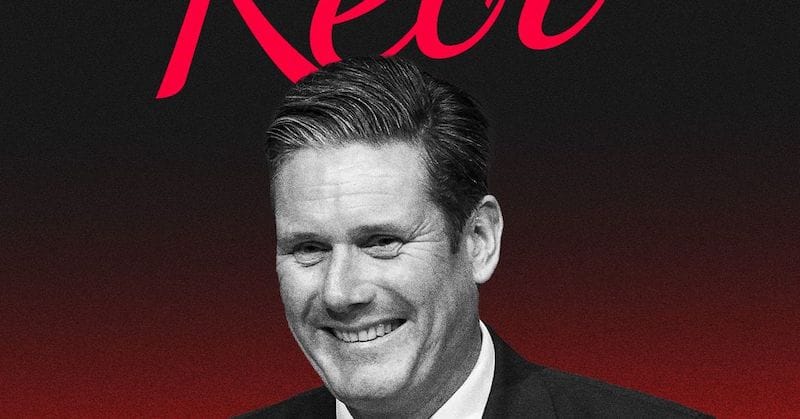As the world’s elite jet home from Davos, they leave one big unanswered question behind. How on earth are we going to fix the gigantic inequality of wealth, now fuelling division, dissent and populist politics around the world?
Every year, Oxfam uses the gathering of the world’s richest on the snowy Swiss slopes to unveil their latest analysis of the state of inequality. And this year’s report was jaw-dropping. Since 2020, while most of us have struggled through the cost-of-living crisis, the world’s richest five men have doubled their fortunes to £688 billion.
Now, inequality in Britain isn’t quite as bad as it is elsewhere, and it is certainly not as bad as it was in the days of the Downton Abbey – but the inconvenient truth is that wealth inequality in Britain has been getting far worse since the Great Financial Crash, with appalling consequences for the future. And that’s why my new book, The Inequality of Wealth, aims to spark a debate about what we are going to do, together, to fix one of the great problems of our time.
Since 1970 the wealth of our nation has grown 100-fold to £12 trillion. For much of my life that wealth was becoming increasingly fairly shared. But since the great financial crash, things have gone into reverse. Indeed, since 2010, the richest 1% have multiplied their wealth thirty-one times more than the rest of us. And that is why, while food banks are running out of food, we now have sales of super-yachts, Rolls Royce cars, private jets at an all-time high.
Yet, things might be about to get worse. As the baby boomers die, they’ll pass on an estimated £5.5 trillion in wealth. But while some will inherit fortunes, many will inherit only bills. Today’s young people may be about to become the most unequal generation in half a century.
Everyone should worry about this because what we learn from unequal countries around the world, is that they have three things in common. They become poor, corrupt and stagnant as social mobility collapses, tax avoidance grows and big money takes over politics.
The public already has a sense of this. Indeed, in the polling we’ve done with the APPG on Inclusive Growth and the Policy Institute, at King’s College London, we have found over 70% think the wealth gap between rich and poor is too big, and people fear it is only going to get worse.
So, what do we do about it? That is what my book tries to answer. Over the last five years, I’ve spoken to experts across Britain, the OECD, the IMF and the World Bank, to come up with answers, tried and tested somewhere around the world.
The first step – obviously – is faster growth. That means embracing higher levels of investment in innovation and, crucially, radically devolving economic power and resources to the city-regions to help them mobilise the people, ideas and money that are needed to foster a bigger supply of better paying knowledge rich jobs.
Second, we will need to a second ‘big bang’ reform to the City of London, to radically consolidate the 32,000 pension funds into a handful of ‘super-funds’ like Canada and Australia, together with an empowerment of pension savers to invest the UK’s £2 trillion of pension fund assets into firms which are not dodging their taxes, poisoning the planet or screwing their workers in a race to bottom on wages and conditions.
Third, we need not universal basic income, but universal base capital with new Universal Savings Accounts opened for everyone when they start work – based on the recently piloted ‘sidecar’ accounts tested to destruction by the National Endowment and Savings Trust. Into these funds should go a £10,000 tax break of savings match for every 25-year-old, to help them put down a deposit on a home to call their own – and that money should, in effect, be a dividend from a new UK sovereign wealth fund.
For some, £10,000 might not sound much, but it is a lot more than the net financial worth of 40 per cent of British households. And £10,000 would cover between a third to a quarter of the deposit on a home in eight of Britain’s regions. Think of it like a Premium Bond – paid out by the nation to the next generation.
It is a shame we are not already one of the 80 nations that have built these funds. If only instead of giving away our oil wealth we had saved the money from North Sea oil – like the canny Norwegians – we would have a sovereign wealth fund worth more than £500 billion today. But we didn’t. So, we haven’t.
So, let’s learn from that mistake and start building one now. There are a range of options for adding assets to build the fund: taking equity in firms with good long-run potential; the state’s knowledge capital; creating sovereign patent funds; borrowing at low interest rates; or using a fraction of our foreign exchange reserves. But it will be much faster to build if we restore some semblance of fairness to our tax code, by considering asking for national insurance contributions on investment income. Or charging the same tax on investment income as regular income, like the old radical Nigel Lawson. Or ending the non-dom tax break. Call it a tax code that reflects our moral code.
At stake in this debate, is nothing less than the nature of freedom in the 21st century. The next few decades could be extraordinary. But they will also be risky. So, we have to remember that our freedom is only as good as our security. And our security is only as strong as our wealth. And that ultimately is the argument for reviving an old ideal, once shared by left and right: the wealth-owning democracy. That is a big idea that I happen to think that people will vote for.


